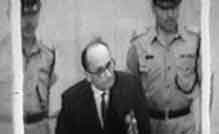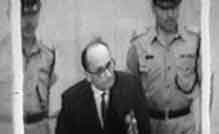
Hannah Arendt regarded herself as a political theorist but her writings on politics had profound philosophical resonances too. As I see it, her greatest achievement was that she stood up against two deep-flowing currents of twentieth century thought – one which tried to see the whole of public life in terms of conscience and personal morality, the other seeking to reduce it to clashes of economic or sectional interests. Her big idea was that politics, or the 'political public space', has its own values and principles, and that they need to be kept distinct both from economics and morality.
Her position was in part a reaction to the twentieth century phenomenon of totalitarianism (a topic about which she published an influential book in 1951). But it was also an attempt to revive a classical argument about citizenship – an argument which, from Plato and Aristotle to Rousseau and Hegel, had insisted on the dignity that people gain from participating in the life of the state.
Like her philosophical mentor Martin Heidegger (1889-1976), she thought of the modern age as a period of dangerous subjectivism – of a tendency to reduce all problems to personal, mental or psychological ones. Hence when she faced up to the classic 'problem of evil', she found it necessary to challenge the modern tendency to identify evil with deliberate maliciousness. Evil happens, to be sure, but it is not necessarily an expression of monstrous or deep-seated malignity. It may just happen.
And that is what got her into trouble when she went to Jerusalem in 1961 to report on the trial of Adolf Eichmann (pictured right)
The book that resulted, with its notorious reference to the 'banality of evil', provoked an outburst of indignation and personal animosity which – as I discovered when I went to Jerusalem to make this programme – has still not died down. Arendt’s critics had little time for her principle that the political must be kept separate from the personal. Even more seriously, it seems to me, they failed to recognise the kind of discussion she was trying to initiate – not a vindictive exchange of political opinions, but a careful excavation of some of the deepest and most tendentious assumptions of modern thought.

Timeline
1906 14 October - Hannah Arendt born in Hanover
1924-6 studies with Martin Heidegger in Marburg
1928 completes doctoral dissertation on St Augustine at Heidelberg
1933 works for socialist and Zionist causes; arrest in Berlin; flight to Paris, where she undertakes social work preparing young Jews for a new life in Palestine
1935 first visit to Jerusalem
1940 internment in France
1941 refugee in New York, working as journalist and editor
1951 publishes The Origins of Totalitarianism; becomes an American citizen
1958 publishes The Human Condition
1961 publishes Between Past and Present
April - stays in Jerusalem to cover Eichmann trial (pictured right)
1962 June - Eichmann hanged
1963 February-March - “Eichmann in Jersualem” published in five instalments in New Yorker, and denounced as anti-Semitic in New York Times;
published a book entitled Eichmann in Jerusalem: a Report on the Banality of Evil. Publication of On Revolution.
1967 professor at New School for Social Research, New York
1975 8 December - dies of a heart attack in New York
1978 publication of two volumes of The Life of the Mind
Reading
Hannah Arendt, Eichmann in Jerusalem: a Report on the Banality of Evil, Penguin paperback
Peter Baehr, editor, The Portable Hannah Arendt, Penguin paperback
Rate and Review
Rate this article
Review this article
Log into OpenLearn to leave reviews and join in the conversation.
Article reviews